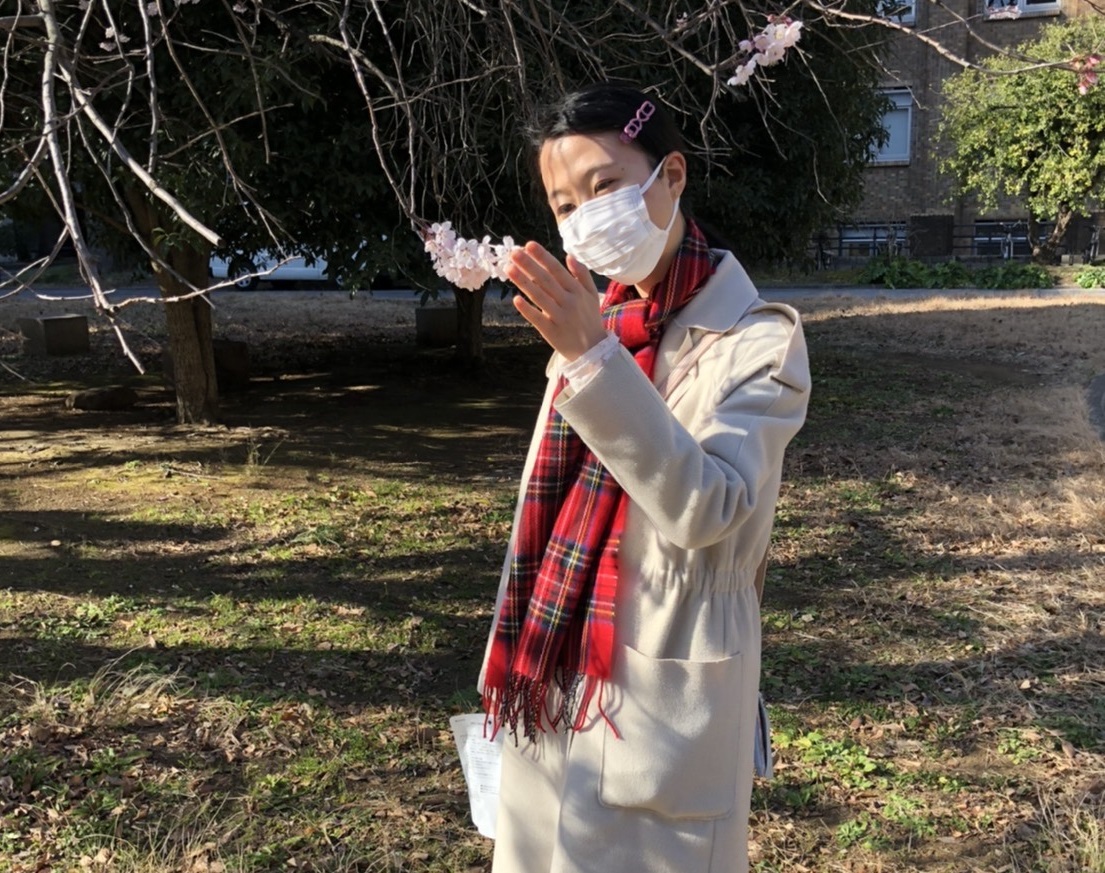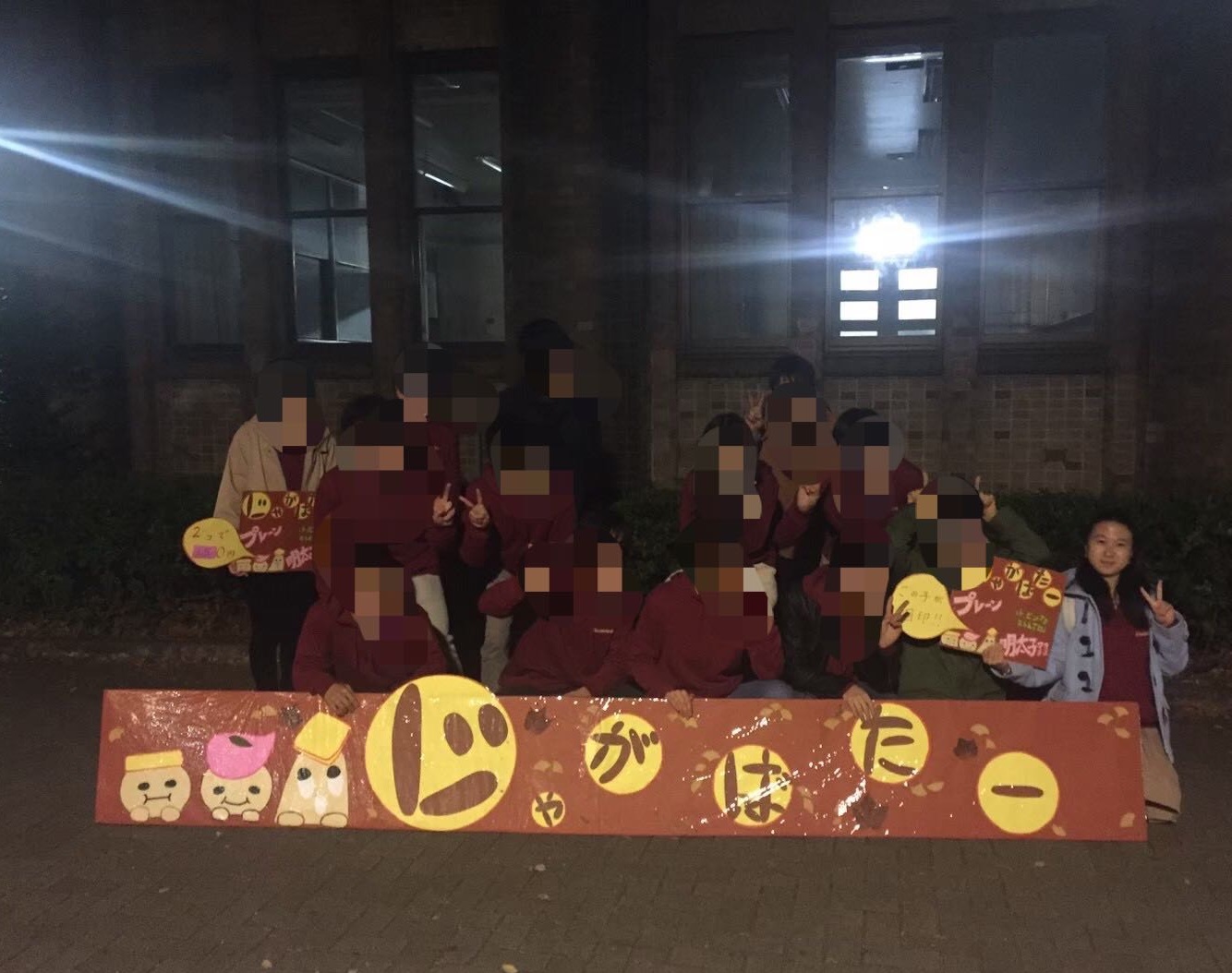- ホーム
- About us
- Interview to International Students in the Department vol. 1 Yuzhu Wang
Interview to International Student - Yuzhu Wang


Q1 Where are you from, and when did you come to UTokyo?
I am from China. I came to U-Tokyo about 5 years ago, for undergraduate education.
Q2 What scholarship/fellowship programs support your
graduate research?
I did not get any scholarship while I was still an undergraduate student. I was lucky to be selected as
a member of one of the WINGS programs (WINGS-ABC) in U-Tokyo after I began to study for a
master’s degree and get a scholarship of 150,000 yen per month, which helped me a lot with my
graduate research.
Q3 Please shortly explain your research project.
I am now working on solving the mechanism of how mitochondria make proteins. It is well known
that mitochondria have their own system of producing proteins, the way how mitochondria do all
this, however, is still unclear. I planned to search for an answer to this question by finding molecules
related to the whole process using a technique called tomography.
Q4 What is your future plan after graduation?
I enjoy doing research and I am planning to study for a Ph.D. degree after getting a master’s degree.
I may then work as a researcher and keep doing my research.
Q5 How is your life in Tokyo and UTokyo?
I enjoyed my life in U-Tokyo a lot. I joined many clubs and made a lot of friends there while I was
still an undergraduate student. I enjoyed the university festival(May Festival & Komaba Festival) a
lot. Not only because my club made many presentations during the Festival, but also because the
foods (yatai) are truly very delicious, Haha. I started my research at a lab in my last year as an
undergraduate student and surprising to find out that my labmates are really very kind to me. Though
we cannot go out and play very often due to COVID-19, we still enjoyed ourselves a lot with the
help of the SNSs.
Q6 What do you usually do outside of research? (e.g. hobby, sports..)
I love traveling around. I really love the feeling surrounded by mother nature. I seldom go on trips
since the COVID-19 pandemic started, though. I turned my interest to in-side door activities, such as
making hand-made items, instead. I recently started learning to engrave hankos made out of rubber
(keshigomu hanko). I first began with engraving circles and squares to get used to the engraving
technique. Though the shapes are not difficult at all, I used to cut off places that ought to have
remained as the rubber was so soft and can be easily cut off. I practiced a lot and finally get used to
the cutting process. I then tried to engrave more complicated shapes, such as cartoon characters.
Hanko can be engraved at any time and at any place as long as I have rubber and a cutting knife with
me. As a graduate student, I do many experiments every day, most of which, the time needed can be
seldom accurately predicted. It is hard for me to arrange a lot of time-fixed outdoor activities
because of the experiments’ uncertainty, the hanko engraving, on the other hand, provides me a great
chance to relax myself without worrying about my experiments’ time schedule.
Q7 Messages to prospective graduate students
I regard the science department of U-Tokyo, Todai, which we mostly called, as a great place for the
ones who are willing to devote themselves to their own research. Students here are allowed to work
on projects that they are interested in, without any worries about funding things. Most of the
professors I know are not very pushy, so students can have enough time to learn how to work on
their own projects, and most of the mistakes the students made can be forgiven. As a Todai student, I
really recommend you to join us if there happens to be a team whose project just fit your interest. I
am sure that you will enjoy your research life here.
Q8 How did you choose your lab?
As I have already explained, I started my student life at U-Tokyo when I was still an undergraduate
student. I took many courses by the professors working in the major that I am interested in and
talked with the professors to know more about their research and how their labs are like. Im this
way, I managed to learn a lot about the labs before we are asked to choose labs, and also made a
good relationship with the professors whose labs I was interested to join. I then succeeded in joining
the lab whose work fits my interest a lot and decided to study for a Ph.D. degree at the lab.



